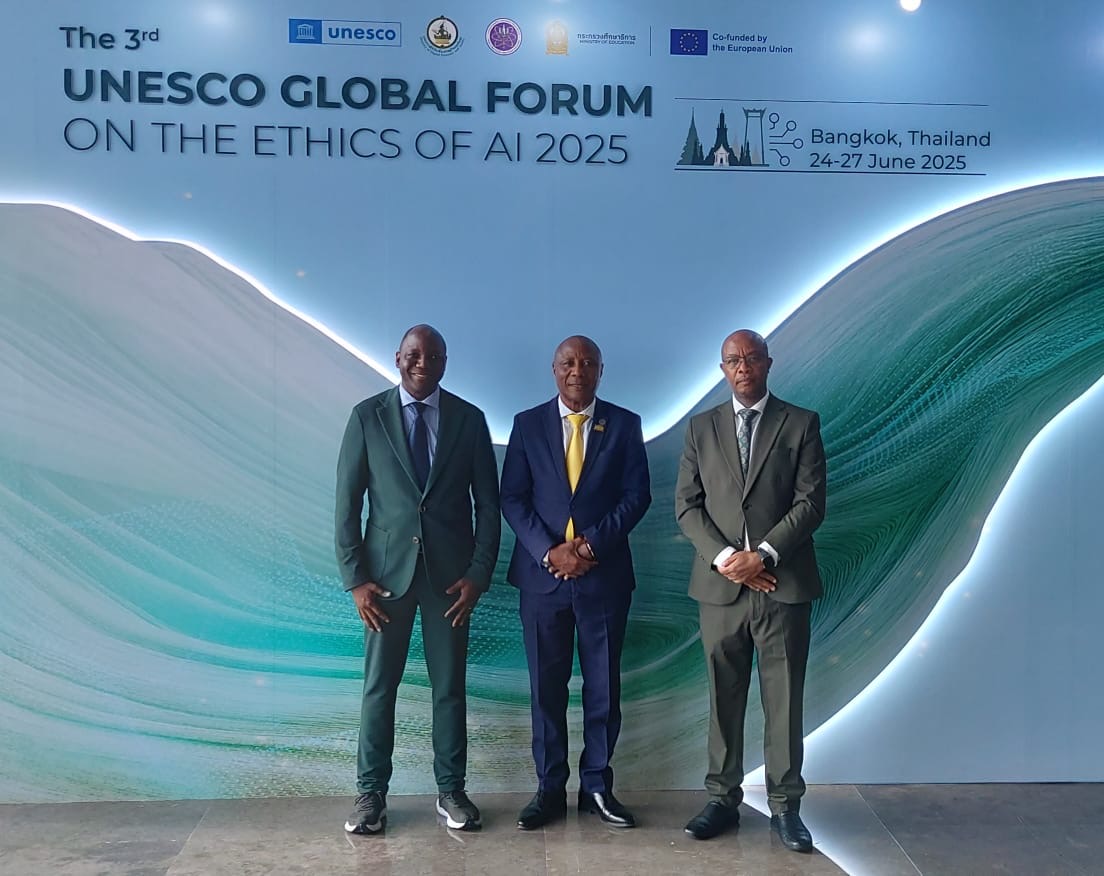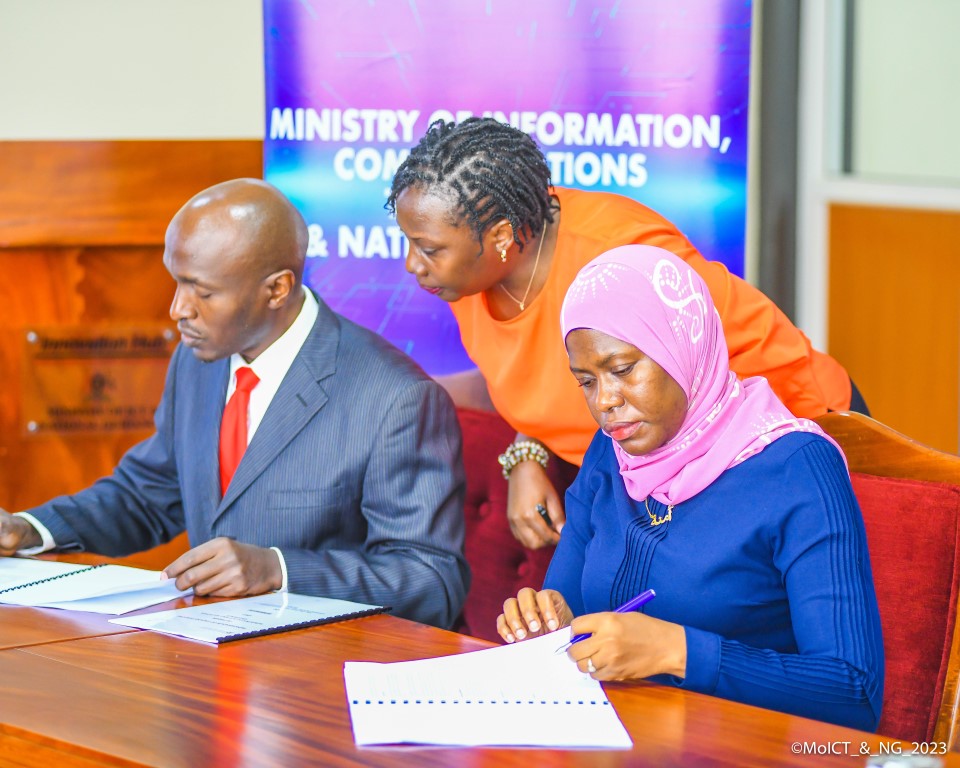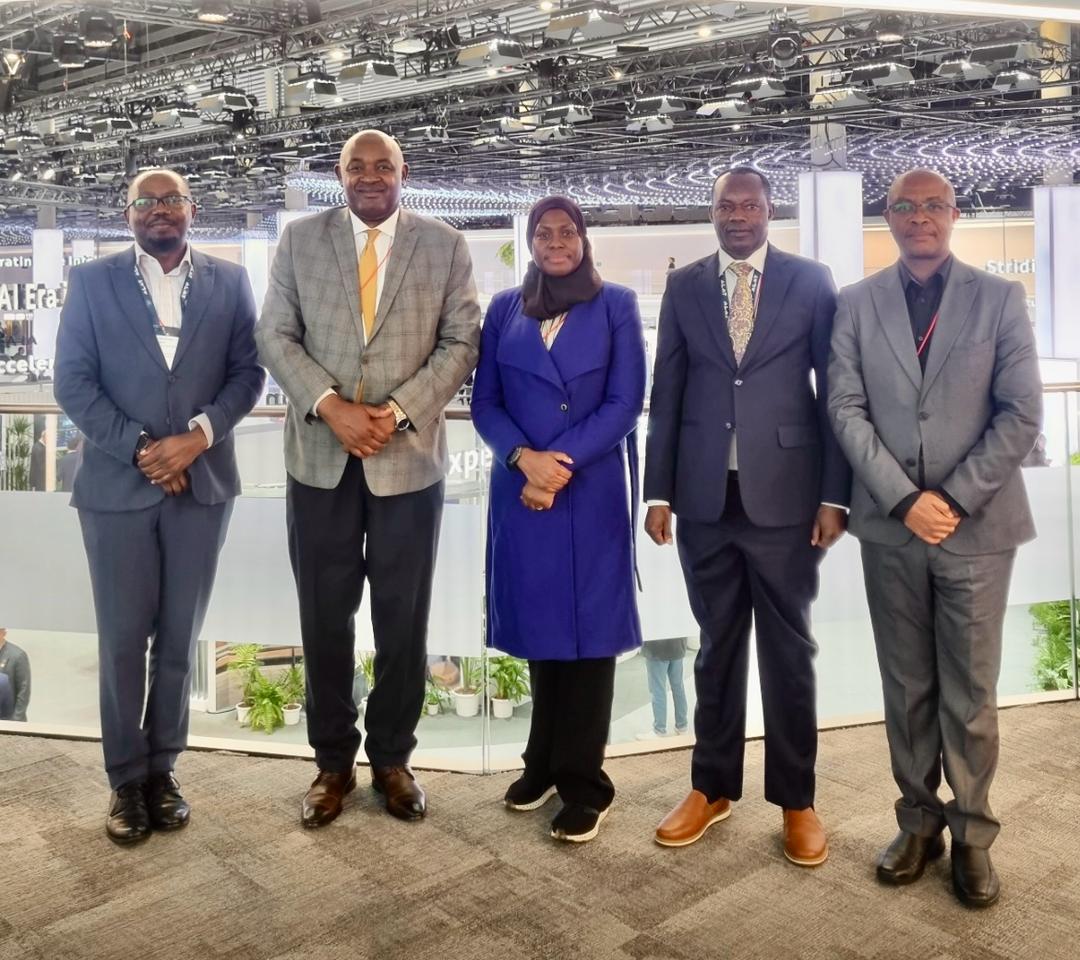Uganda has reaffirmed its global commitment to ethical artificial intelligence during the 3rd UNESCO Global Forum on the Ethics of Artificial Intelligence (GFEAI), held in Bangkok. Hon. Godfrey Baluku Kabbyanga, Minister of State for ICT and National Guidance, represented the country at the high-level event and delivered a keynote address during the Ministerial Session, positioning Uganda as a continental leader in inclusive and rights-based AI development.
A major highlight of the forum was UNESCO’s selection of Uganda for the next phase of the Artificial Intelligence Readiness Assessment Methodology (RAM), a tool to evaluate national preparedness for ethical, inclusive, and accountable AI deployment. Supported by UNESCO, the assessment will be conducted by Ugandan experts and builds on the 2024 “Uganda AI Landscape” evaluation carried out with ITU support. Uganda will also benefit from capacity-building through the Supervising AI by Competent Authorities initiative—a partnership between UNESCO, the European Union, and the Dutch Authority for Digital Infrastructure—focused on training public servants in ethical AI oversight.
Uganda’s AI readiness journey has been steadily progressing, guided by the Ministry’s Department of Research and Development. Foundational steps have included scoping national AI use cases, identifying policy and institutional gaps, and engaging with partners such as the UNDP to broaden stakeholder involvement across the country. These efforts are now culminating in the formulation of Uganda’s National Strategy for AI and Emerging Technologies Governance, a roadmap aligned with both the Digital Uganda Vision and the African Union Strategy on AI. This strategy is being developed with the support of the World Bank under the Uganda Digital Acceleration Project (UDAP).
In his keynote, Hon. Kabbyanga underscored Uganda’s commitment to ensuring AI contributes to human dignity, inclusion, and equitable development. He stated, “For Uganda, AI must serve as a bridge—not a barrier—to opportunity, dignity, and shared prosperity.” His message echoed UNESCO’s vision for AI, as expressed by Director-General H.E. Audrey Azoulay, who reminded delegates that “we must ensure that artificial intelligence serves as a force for good, respecting human rights, promoting inclusion, and advancing shared development goals.”
The forum was officially opened by H.E. Paetongtarn Shinawatra, Prime Minister of the Kingdom of Thailand, who emphasized the strategic importance of AI in national development planning. Uganda’s presence at the forum, including technical representation by Mr. Ambrose Ruyooka, Head of Research and Development at the Ministry, reflected a blend of political will and technical expertise. Mr. Ruyooka highlighted that Uganda is far from starting from scratch in this area, stating, “We are not starting from zero. Uganda has taken deliberate steps, including readiness assessments, scoping, and now building institutional capacity to ensure ethical and inclusive AI governance.”
Hon. Kabbyanga also participated in a high-level panel discussion on the national implementation of UNESCO’s ethical AI recommendations. He informed global delegates that Uganda will soon launch a National AI Task Force to lead and coordinate the country’s AI governance efforts. The panel also featured strong reaffirmation of Uganda’s continued engagement with international efforts, including the Global AI Standards Development Process led by ISO and the ITU’s AI for Good initiative.
Dr. Lidia Arthur Brito, UNESCO’s Assistant Director-General for Social and Human Sciences, commended Uganda’s progress and reiterated UNESCO’s commitment to supporting the country’s efforts. “Through this partnership, UNESCO aims to support Uganda in establishing governance frameworks that uphold ethical principles, promote transparency, and ensure that artificial intelligence contributes meaningfully to sustainable development and the protection of human rights,” she said.
The Ministry of ICT and National Guidance extends its gratitude to UNESCO and all its partners for their continued support. Uganda remains firmly dedicated to shaping a future where artificial intelligence serves all citizens ethically, inclusively, and sustainably.
Jun 26, 2025
Uganda Champions Ethical AI at UNESCO Global Forum in Bangkok
Artificial Intelligence
By Fiona Luboga

The author is a Communications Officer at the Ministry of ICT & National Guidance.
Related Stories

Artificial Intelligence
Ministry of ICT and National Guidance to leverage AI to drive the ICT innovation Agenda across Uganda in a partnership with Sunbird AI
Jan 26, 2023

.png)